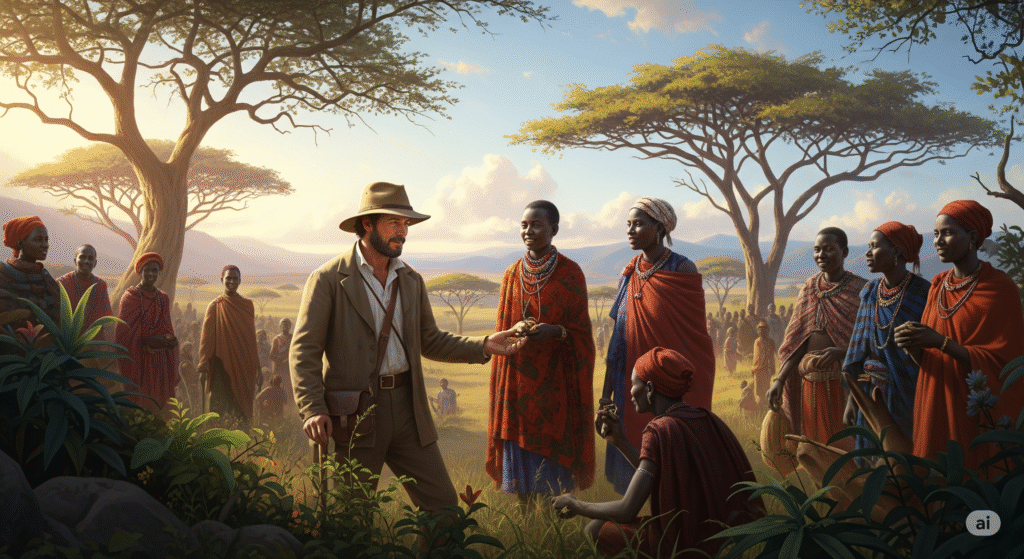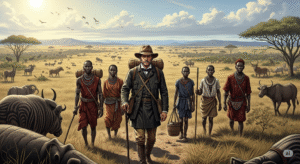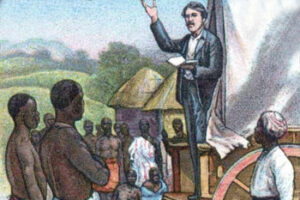
Part 6: David’s Final Journey – A Heart That Never Gave Up
After running into Henry Stanley in the town of Ujiji, many assumed David Livingstone would make his way back home to Britain. He was of advanced age, sick, and weak. He could hardly even walk. He hadn’t seen his children in many years.
But David said no.
He told Stanley,
“I am not ready to leave yet. I still have work to do.”
He wanted to continue looking for the source of the Nile River, which he believed was close. He also still wanted to advocate against slavery, which he observed destroying lives all over Africa.
So while Stanley returned to Europe, Livingstone stayed.
Over the next two years, David kept walking across central Africa.
He used tree trunks to cross large rivers in canoes, and he slept under trees, even in storms. He had fever, was sick to his stomach, and had open sores on his feet. At times, he couldn’t walk or stand, and would be carried.
Even so, he wrote in his journals every day. He developed maps, studied rivers, and wrote everything down that he saw.
The people around him, his African guides and helpers, called him “Bwana Daudi”, which means “Master David.” They were still around him at the end.
One night, David was very weak. He could no longer eat or speak much.
In the early morning, his helpers found him on his knees beside his bed, as if in prayer. But he was quiet. He had died alone, in the heart of Africa.
He was 60 years old.
David’s faithful helpers (including primarily Susi and Chuma) knew how much he loved Africa. They buried his heart underneath a tree in the village of Ilala (which is now in Zambia).
Then they made an outstanding decision.
They walked more than 1,500 kilometers carrying his body and his papers and journals to the coast of Tanzania.
A ship then took his body to Britain.
David Livingstone was interred in London at Westminster Abbey. He was buried alongside kings, queens, and great leaders.
But people say:
“His body is in Britain, but his heart is in Africa.”
David Livingstone had not achieved wealth, he hadn’t fought in wars, and he hadn’t built cities.
But he did change the world by:
Opening up unknown parts of Africa with maps and journals.
Speaking out against slavery with his words and reports.
Showing that exploration can be done with dignity and love, and not violence.
Creating a legacy for others to explore through kindness, science, and faith.
Keep reading dipdives





